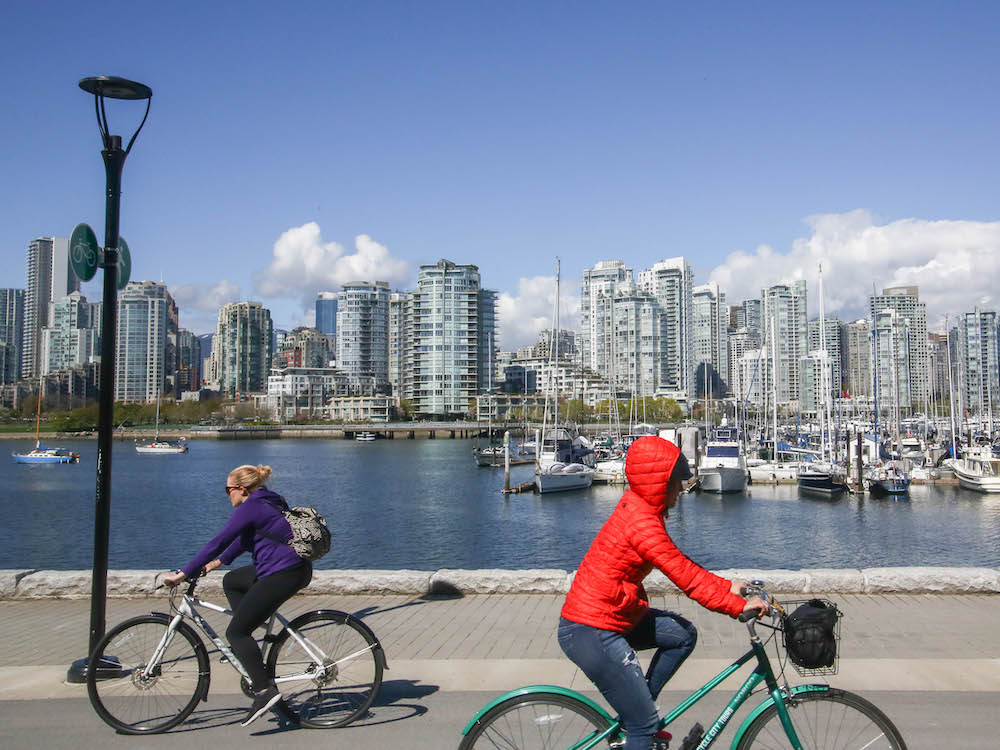In August 2016, we celebrated with workers, families, unions and colleagues when the City of Vancouver voted to become a living wage employer. After years of organizing, this vote enshrined the right for all those working for the city, including contracted and subcontracted workers, to be compensated for their labour at or above the living wage. In that moment, the city became the largest living wage employer in Canada, a win for a more livable Vancouver.
However, in January 2023, Vancouver city council voted in a closed-door meeting to end the City of Vancouver’s certification as a living wage employer, a tremendous loss for every working family across B.C.
We believe that anyone who works for the City of Vancouver should be able to afford to live in Vancouver. Being a living wage employer is the best way to guarantee that an organization’s workers and contractors can do that.
The living wage is the hourly amount that someone needs to earn to be able to afford essentials like food, clothing, rental housing, child care and transportation. It’s a bare-bones calculation — it doesn’t include any extras like seeing a show, paying off a loan or saving for school. In Vancouver today, that cost is $25.68, a 6.6 per cent increase from 2022.
‘It changed their life’
The difference made in workers’ lives during the City of Vancouver’s time as a living wage employer was tangible. The City of Vancouver reported that becoming a living wage employer was “very rewarding” and created “unintended positive consequences, impacting far more than just the City’s direct or contractual staff.”
Staff reported receiving letters from “our graffiti removal services about employees saying just that it changed [their] life.”
Today multiple other municipalities, and nearly 400 employers across B.C., are continuing their commitments to paying the living wage despite, or perhaps because of, the significant increases to the living wage in recent years.
Rents and food costs continue to increase across British Columbia. From 2022 to 2023 the average cost of food went up by six per cent, or about $70 per month, and the cost of rent increased 19 per cent, or about $400 per month.
In Vancouver those numbers mean more workers are struggling to make ends meet. For example, use of the Greater Vancouver Food Bank has tripled.
Workers deserve work that lifts them out of poverty, rather than keeping them trapped in cycles of poverty. Paying the living wage ensures this is possible.
Instead the city moved to a “fair wage” program, which averages out the living wage over the previous five-year period as a justification for cancelling the living wage program. Fair for whom? The city’s “fair wage” is $21.86, nearly four dollars per hour less than the living wage of $25.68.
None of us get to pay rent on a five-year rolling average, and our grocery prices aren’t on a five-year rolling average either. There's nothing fair about it.
When council rescinded the living wage policy, they took that four dollars an hour out of the pockets of hard-working individuals and families who are struggling to get by in one of the most expensive regions in the country. We’re fighting to bring it back.
The path back to the living wage
Despite ABC’s efforts to undermine affordability, equity and fairness, we know how to win back the living wage for City of Vancouver workers. We’ve done it before.
Back in 2014, the Metro Vancouver Alliance organized a broad-based coalition of labour, community and faith groups to work together for a living wage policy at the City of Vancouver. This included hosting a public assembly, with representatives from all the major municipal parties in Vancouver present.
The Metro Vancouver Alliance asked each candidate to commit to working together to make the City of Vancouver a living wage employer if elected. Following the election, this coalition of community voices continued to campaign to make those commitments a reality.
In 2016, our collective effort became a collective win. A broadly representative delegation spoke in the council chambers in favour of a living wage, while a rally took place outdoors. Media noted it was the first time they had ever seen a gathering to support a motion being adopted rather than to protest one. The real-life experiences of workers who would benefit from the policy were highlighted front and centre.
Winning back the living wage will not be easy with Mayor Ken Sim and an ABC supermajority. It will take the voices of workers, clever consistent organizing and all of us working together, reminding this Vancouver city council that as the cost of living rises and workers continue to struggle, it’s more important than ever to pay the living wage.
You can add your name to tell Mayor Sim and ABC to reinstate Vancouver’s living wage.
We will follow up with everyone who signs the petition, with more ways to get involved before Vancouver council votes on the living wage this February. ![]()
Read more: Rights + Justice, Labour + Industry, Municipal Politics


















Tyee Commenting Guidelines
Comments that violate guidelines risk being deleted, and violations may result in a temporary or permanent user ban. Maintain the spirit of good conversation to stay in the discussion and be patient with moderators. Comments are reviewed regularly but not in real time.
Do:
Do not: